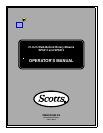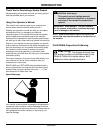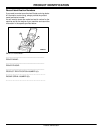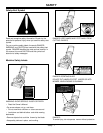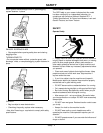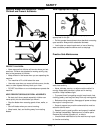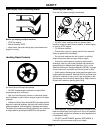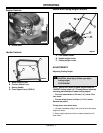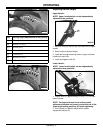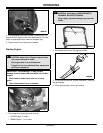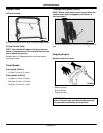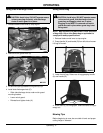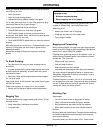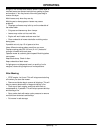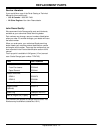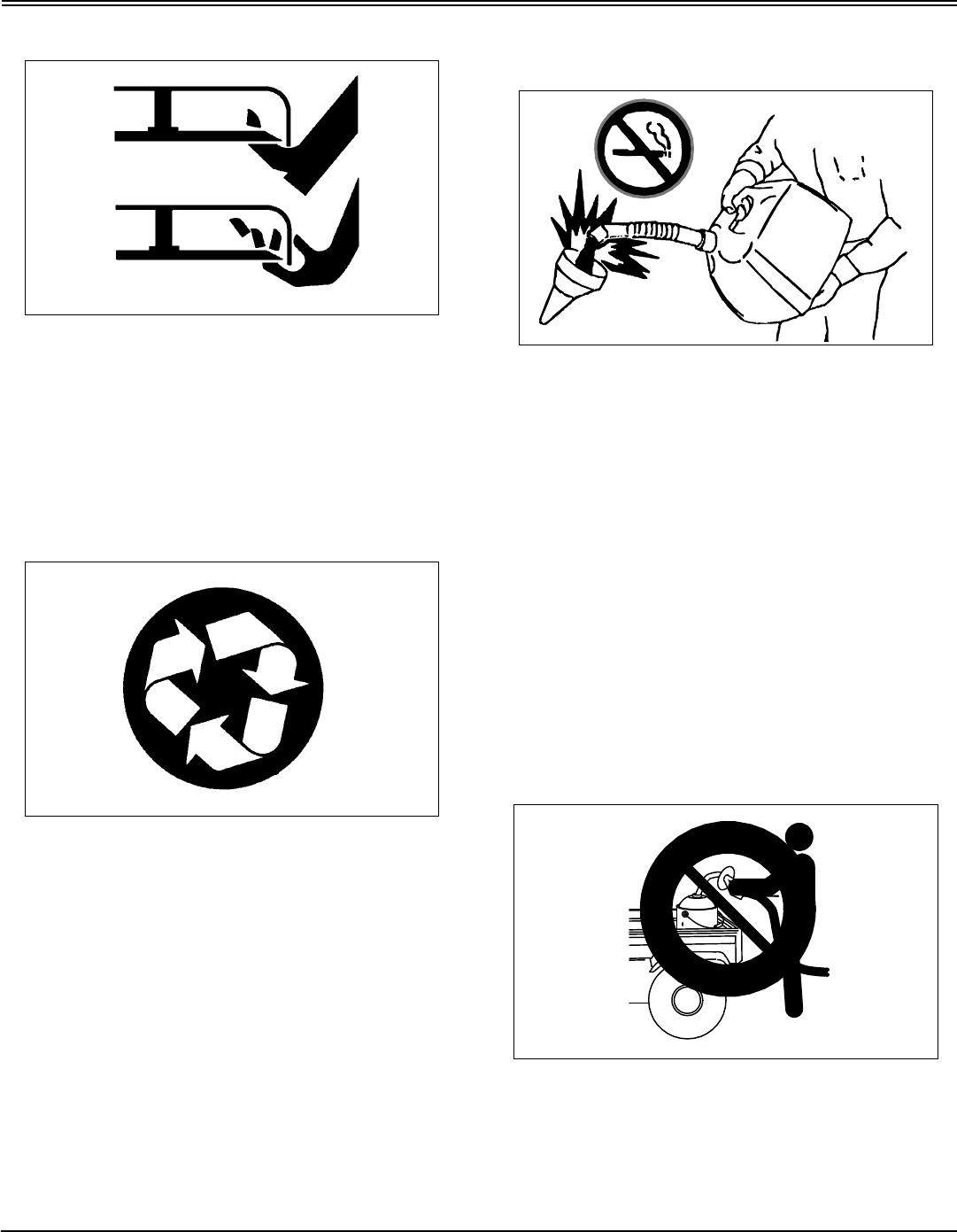
Safety - 4
SAFETY
Avoid Injury from Contacting Blade
Before you unplug or adjust machine:
• STOP the engine.
• Wait for blade to STOP.
• Keep hands, feet and clothing away from blade when
engine is running.
Handling Waste Products
• Waste products, such as, used oil, fuel, and batteries,
can harm the environment and people.
• DO NOT use beverage containers for waste fluids -
someone may drink from them.
• See your local Recycling Center or authorized Scotts
servicing dealer to learn how to recycle or get rid of waste
products.
• A Material Safety Data Sheet (MSDS) provides specific
details on chemical products: physical and health hazards,
safety procedures, and emergency response techniques.
The seller of the chemical products used with your machine
is responsible for providing the MSDS for that product.
Handling Fuel Safely
Fuel and fuel vapors are highly flammable:
• DO NOT refuel machine while you smoke, when
machine is near an open flame or sparks, or when engine
is running. STOP engine.
• Fill fuel tank outdoors.
• Prevent fires: clean oil, grease and dirt from machine.
Clean up spilled fuel immediately.
• Do not store machine with fuel in tank in a building
where fumes may reach an open flame or spark.
• Prevent fire and explosion caused by static electric
discharge. Use only non-metal, portable fuel containers
approved by the Underwriter’s Laboratory (U.L.) or the
American Society for Testing & Materials (ASTM). If using a
funnel, make sure it is plastic and has no screen or filter.
• Static electric discharge can ignite gasoline vapors in an
ungrounded fuel container. Remove the fuel container from
the bed of a vehicle or the trunk of a car and place on the
ground away from the vehicle before filling. Keep nozzle in
contact with container opening while filling.
• When practical, remove equipment from trailers or truck
beds and refuel them on the ground. If this is not possible,
use a portable, plastic fuel container to refuel equipment on
atruckbedortrailer.
• DO NOT use METHANOL gasoline. METHANOL is
harmful to the environment and to your health.



